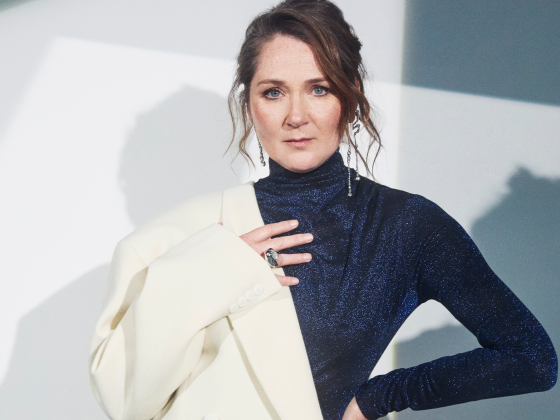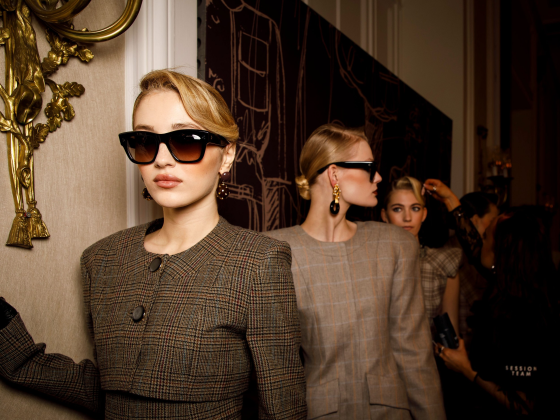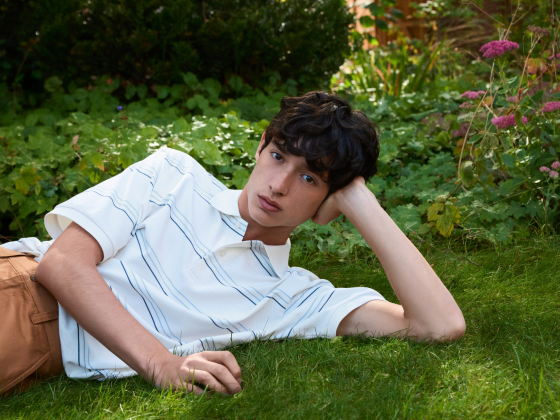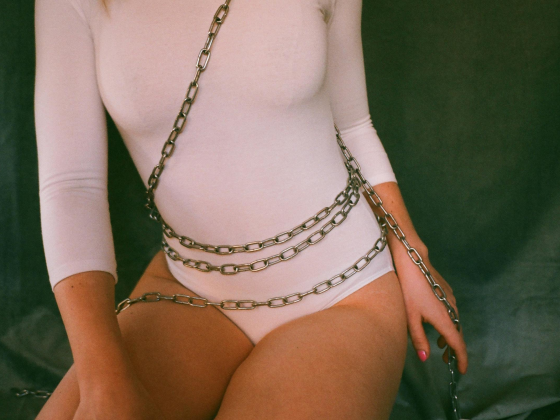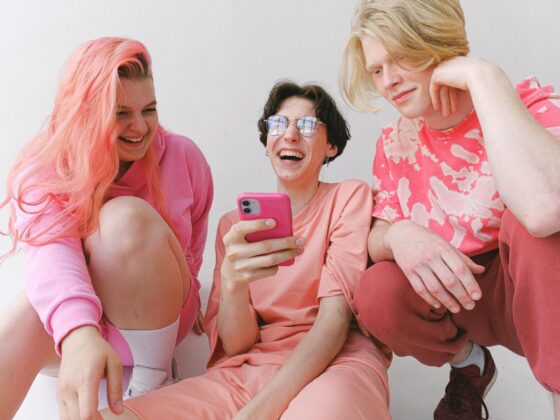As the first wave of the recipients of the BFC foundation are released; Flanelle magazine takes a closer look at how these brands are giving back in the era of Covid-19
Words by Joanne M Kennedy
London, a global powerhouse known for producing some of the most extravagant, creative and iconic designers in the world. A city where fresh new talent has endless opportunities and the prospect of being nurtured into a household name. London is a city that has, like many others across the world, seen its fashion industry brought to its knees by the Covid-19 crisis. The crisis brought an economic upheaval, leaving designers and fashion outlets unable to manufacture or trade their designs, with no way to generate revenue and with no prospect of things reverting to normality any time soon.
During the initial stages of lockdown, The British Fashion Council (BFC) used survey results to estimate that thirty-five percent of young British designers, may not be able to weather the Covid-19 storm over the succeeding months, with an estimated half of the industry being wiped out entirely by the end of the year. The likes of Laura Ashley, Cath Kidston, Oasis and Warehouse; big high street retailers, have already succumbed to the crisis and gone into administration, so what chance do emerging talents have as the industry crumbles around them? Step in BFC; Spearheading the fight for brands and fashion firms to persevere through these bleak times.
It has been almost three months since the British Fashion Council announced a one million pound emergency grant to cradle struggling British designers during these crucial times. With contributions sought from a variety of businesses, with the likes of Browns, Burberry and Paul Smith to name a few; the fund was able to provide thirty-seven carefully selected and promising young talents a grant of up to £50,000 each. In an attempt to provide some tonic to the wound of Covid-19 and whilst the fashion industry is ostensibly on hold, the recipient designers have been responsive to the crisis; from Edeline Lee crafting face masks on a non-profit basis, to several brands pledging a percentage of e-commerce sales; quite a noble move, considering their own orders have been canceled on a mass scale and retail sales have slumped dramatically. Never before has the industry – traditionally stereotyped as closed, unfriendly and competitive in nature – been united, open and willing to help. In the spirit of rallying together, some designers have truly stepped up to the mark. Flanelle magazine hereby shines a spotlight on five of the BFC foundation fund beneficiaries.

Richard Quinn
Designer Richard Quinn, currently taking sanctuary in his parent’s home in Kent, has been using this time to create a capsule-type collection of vibrant gown and mask twinsets, all from deadstock fabric, ticking the sustainability box as well as contributing to the Covid-19 relief effort. The Peckham based designer, known for his signature upholstered florals and larger than life designs, was true to form with nine different floral patterns unveiled. Although unable to be used for frontline staff (the items created are hospital but not government-approved) the contribution frees up the diminishing supplies of PPE for ICU staff and of course brings some much-needed cheer, even in the darkest corners of the hospital wards. Quinn continues to make waves throughout the Covid-19 crisis, he recently created a specially commissioned artwork for the cover of a fashion weekly magazine which will be auctioned off to provide much needed funds to #VisorArmy, a collective of designers currently generating visors for frontline workers.

Phoebe English & Bethany Williams
While some have been grappling with this moment of standstill, designers Phoebe English & Bethany Williams have teamed together to make a positive communal effort with Holly Fulton (although not a Foundation Fund recipient herself). The trio set to work creating the Emergency Designer Network (EDN); A volunteer-led business with an aim to supplement the supply of PPE stock. A call for support for the EDN was met with rallying cries of enthusiasm from experienced sewers and machinists, to manufacturers and individuals with capabilities to provide donations of materials and funds; bringing together those with the skills and expertise to help in any way they can. A number of UK based factories have been drafted in to construct the hospital approved patterns, which were laundered in-house (in accordance with infection control protocols) before being dispatched to care settings in need.
Away from the EDN, Williams proves that in the face of adversity does come opportunity. She reflects on this time as a release from the often overbearing pressure and unrealistic demands of the usual fashion cycle, instead using her spare time to check in on community projects she would ordinarily support; for example, The Magpie project, which supplies a safe haven for homeless mothers and their children.
Her counterpart, Phoebe English, a mouthpiece for the sustainability conversation, has offered a more one on one approach. A simple ‘Can we help?” Posted on her Instagram page as the country went into lockdown offered personal deliveries of food or medication to those isolated in the SE8 postcode of London. A further post looking for people to pool resources and provide support making PPE came before the formation of EDN was announced. The designer has a positive outlook, seeing the pandemic as a way for brands to free themselves in an age of rampant overconsumption. In an interview via Eco-age, Phoebe clarified “The industry has been ripe for change for a very long time. I think the pandemic will be a catalyst for this. This does give the industry an opportunity to disinherit some of the practices that it was perpetuating, which potentially aren’t relevant or working for the people or the environment that we live in.” Her contribution doesn’t stop there, English founded the celebrated WhatsApp group, ‘Fashion On Earth’, with a social mission for transparency, sustainability, and sharing of knowledge in relation to anything from packaging options to fabric solutions.

Charles Jeffrey Loverboy
Charles Jeffrey Loverboy, an eccentric punk revival label has been championing the UK’s creative freelance workforce, who form a vast percentage of fashion industry workers. Recognising that there has been minimal acknowledgment for this vulnerable group; the designer opened dialogue with the government to provide a Temporary Income Protection Fund to get freelances through the challenging times ahead. Jeffrey readily agreed to become a signatory on the Creative Industries Federation (CIF) letter which further detailed the challenges creative freelancers are facing to bring awareness to the government. Jeffrey explains “I was personally worried about all of my freelance friends and colleagues that I work with and how they will be protected during this harsh time. It’s important to support creativity during this time, as culture never stops, even during a crisis.” Continuing to reside in London, Jeffrey’s core team of five are persisting with plans to work on a jersey edit for June and have penciled in a smaller collection for later in the year if shows are to go ahead. Putting aside creative indulgence, Jeffrey insists his role has become more about supporting his team. As a small token of gratitude, and to spread positivity, Jeffrey has been sending necklaces from his SS20 shows which are not currently for sale, to some of his devoted followers.

Alighieri
Alighieri; a jewellery designer with a focus on creating modern heirlooms and also a previous winner of the renowned Queen Elizabeth II Award; a prestigious accolade that awards designers for sustainable practices, strong ethics and community values. It is no surprise that when faced with the adversity of the current climate, Rosh Mahtani, founder of the brand, stepped up to the mark demonstrating a focus on community and togetherness. Mahtani has been delivering meals to NHS staff at Kings College hospital on behalf of Jikoni chef, Ravinder Bhogal. She has also provided light escapism via her Instagram channel, with art therapy sessions, spoken passages from Dantes ‘The Divine Comedy’ and posts presenting love letters from loyal followers of the brand. Mahtani was close to opening her first store as the brand was enjoying an upwards trajectory of revenue prior to lockdown; now she is operating solo from her home, sending out client orders. She is one of the brands choosing to donate twenty percent of these orders to Trussell Trust, a charity who are supporting food banks around the UK.
All is not lost for the other two hundred applications of the fund; as Caroline Rush, the BFC’s chief executive explained that the fund may reopen for future rounds, “The need for support is immense. Our hope is to reopen the fund for future rounds to help as many businesses as possible and ensure the future growth and success of the British fashion industry.” The BFC is also aiming to raise £50 million with support from established businesses and individuals as well as calling on the British government to ensure the survival as well as future growth and success of the British fashion industry.
A full list of the recipients of the first round are below:
Alighieri, 16Arlington, Ahluwalia, Aries, ART SCHOOL, Bethany Williams, BIANCA SAUNDERS, Chalayan, Charles Jeffrey LOVERBOY, Chopova Lowena, CRAIG GREEN, David Koma, E. Tautz, E. L. V. Denim, Edeline Lee, EFTYCHIA, Halpern, King & Tuckfield, Kwaidan Editions, Liam Hodges, Matty Bovan, Métier, Nabil Nayal, NEOUS, Nicholas Daley, Palmer//harding, PAPER LONDON, paria/FARZANEH, PER GOTESSON, Phoebe English, RAEBURN, Rejina Pyo, Richard Malone, RICHARD QUINN, ROKSANDA, Stefan Cooke, Toogood.

